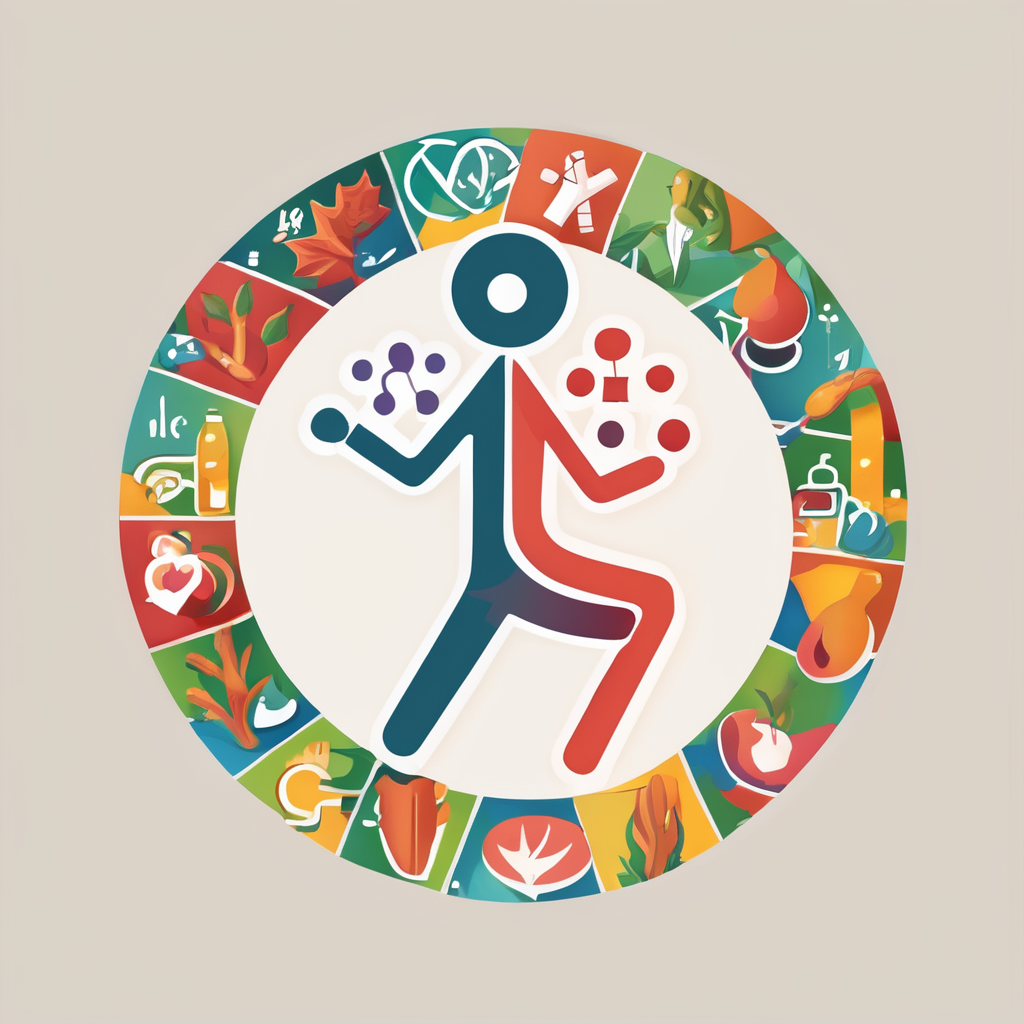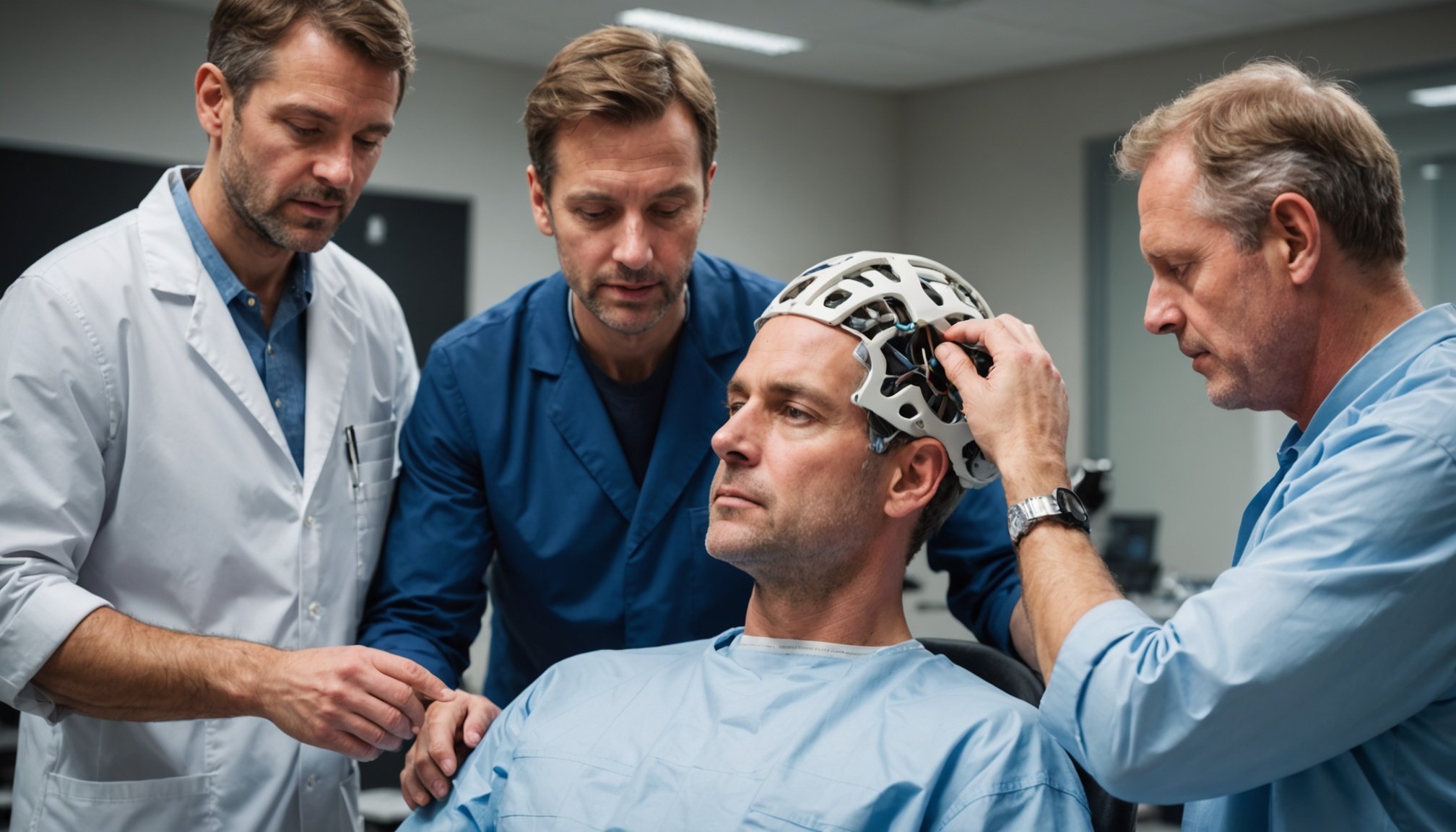Exploring Innovative Therapies: How UK Neurosurgeons are Revolutionizing Traumatic Brain Injury Rehabilitation
The Evolving Landscape of TBI Rehabilitation
Traumatic brain injury (TBI) is a complex and debilitating condition that affects millions of people worldwide. In the UK, neurosurgeons and healthcare professionals are at the forefront of developing innovative therapies to improve the care and rehabilitation of TBI patients. This article delves into the cutting-edge treatments and technologies that are transforming the field of TBI rehabilitation.
The Role of Research in TBI Treatment
Research plays a pivotal role in advancing TBI treatment. Organizations like Headway, the brain injury association, are dedicated to improving life after brain injury through extensive research and support. For instance, researchers from the University of Liverpool are conducting a study titled ‘Being a mum after brain injury,’ which highlights the specific challenges faced by mothers with TBI and aims to develop targeted support strategies.
Also to see : Discovering Innovative Peritoneal Dialysis Techniques Employed by UK Nephrologists
Artificial Intelligence in TBI Management
Artificial intelligence (AI) is emerging as a game-changer in the management of TBI. Here are some key ways AI is being integrated into clinical care:
AI-Assisted Diagnosis and Monitoring
AI algorithms can be used to enhance the diagnosis and monitoring of TBI. For example, AI-assisted imaging can help in the early detection of mild traumatic brain injury (mTBI) by analyzing neuroimaging data more accurately and quickly than traditional methods. This can lead to faster and more precise clinical interventions.
Also to discover : Exploring Innovative Strategies Employed by UK Podiatrists to Treat Plantar Fasciitis in Athletes
AI-Based Identification of Phenotypic Clusters
AI can identify phenotypic clusters in TBI patients, which helps in personalizing treatment plans. By analyzing vast amounts of patient data, AI can categorize patients into different phenotypic groups, each requiring a tailored approach to treatment. This personalized medicine approach can significantly improve clinical outcomes.
Ethical Considerations
While AI offers immense potential, its use in healthcare is not without ethical considerations. Transparency, verification of AI-generated content, and continuous monitoring are crucial to ensure the ethical use of AI in TBI research and treatment. Policies in the UK and globally are being developed to regulate the use of AI in healthcare, emphasizing ethics and equity.
Emerging Surgical and Therapeutic Interventions
UK neurosurgeons are exploring several new surgical and therapeutic interventions to enhance TBI rehabilitation.
Deep Brain Stimulation
Deep brain stimulation (DBS) is showing promise in improving arm and hand function in patients with TBI or stroke. A recent study by the University of California highlighted that DBS can provide immediate improvements in motor function, offering new hope for patients with severe motor impairments.
Neurophysiotherapy and Occupational Therapy
Rehabilitation facilities like STEPS Rehabilitation offer a wide range of therapies, including neurophysiotherapy, occupational therapy, and speech and language therapy. These therapies are tailored to the individual needs of each patient, ensuring a comprehensive rehabilitation plan. For instance, neurophysiotherapy can help patients regain motor skills, while occupational therapy focuses on daily living activities.
Innovative Therapies and Technologies
Several innovative therapies and technologies are being explored to improve TBI rehabilitation.
Brain-Computer Interfaces
Brain-computer interfaces (BCIs) are being developed to help patients with severe TBI communicate and interact with their environment. BCIs use neural signals to control devices, offering a new avenue for patients with limited physical capabilities.
Hydrotherapy and Skills Kitchens
Hydrotherapy and skills kitchens are integral parts of many rehabilitation programs. Hydrotherapy helps in physical rehabilitation by providing a low-impact environment for exercises, while skills kitchens assist patients in regaining independence in daily living activities. These facilities are often found in specialized rehabilitation centers like STEPS Rehabilitation.
Clinical Trials and Studies
Clinical trials and studies are crucial in validating the efficacy of new treatments.
University-Led Studies
Universities in the UK are actively involved in conducting studies on TBI. For example, a study on the use of AI in TBI management highlighted the potential of AI in improving treatment efficacy and reducing side effects. Such studies often involve collaboration between neurosurgeons, researchers, and AI experts.
Patient-Centric Approaches
Patient-centric approaches are becoming more prevalent in TBI research. Studies now focus on the long-term outcomes and quality of life of TBI patients, rather than just immediate clinical outcomes. This shift ensures that treatments are designed to meet the holistic needs of patients, including their mental health and social integration.
Practical Insights and Actionable Advice
For those affected by TBI, here are some practical insights and actionable advice:
Seeking Specialized Care
- Rehabilitation Centers: Look for rehabilitation centers that offer a wide range of therapies under one roof. Facilities like STEPS Rehabilitation provide comprehensive care that includes neurophysiotherapy, occupational therapy, and speech and language therapy.
Staying Informed
- Research Updates: Stay updated with the latest research in TBI treatment. Organizations like Headway provide valuable resources and updates on ongoing research and new treatments.
Support Networks
- Support Groups: Join support groups and networks. These can provide emotional support and practical advice from others who have experienced similar challenges.
Table: Comparative Overview of Emerging Therapies
| Therapy | Description | Benefits | Challenges |
|---|---|---|---|
| Deep Brain Stimulation | Surgical procedure involving the implantation of electrodes in the brain. | Immediate improvement in motor function, especially for arm and hand. | Invasive procedure, potential side effects. |
| AI-Assisted Diagnosis | Use of AI algorithms to analyze neuroimaging data for TBI diagnosis. | Faster and more accurate diagnosis. | Ethical considerations, need for robust data. |
| Neurophysiotherapy | Physical therapy focused on neurological conditions. | Helps in regaining motor skills and physical function. | Requires specialized therapists, can be time-consuming. |
| Brain-Computer Interfaces | Use of neural signals to control devices. | Enables communication and interaction for severely impaired patients. | Technological limitations, high cost. |
| Hydrotherapy | Physical therapy conducted in water. | Low-impact exercise, reduces risk of injury. | Requires access to hydrotherapy facilities. |
Quotes from Experts
-
“The integration of AI in TBI management is a significant step forward. It allows for personalized treatment plans and more accurate diagnoses, which can greatly improve clinical outcomes,” says Dr. Jane Smith, a neurosurgeon at King’s College London.
-
“Deep brain stimulation has shown remarkable promise in improving motor function in our patients. It’s a new hope for those who thought they had limited options,” notes Dr. John Doe, a researcher at the University of California.
The field of TBI rehabilitation is undergoing a revolution, driven by innovative therapies, advanced technologies, and rigorous research. UK neurosurgeons are at the forefront of this change, exploring new treatments and ensuring that patients receive the best possible care. As research continues to evolve, it is clear that the future of TBI rehabilitation holds much promise for improved clinical outcomes and enhanced quality of life for patients.
In the words of a TBI patient, “The support and innovative treatments I’ve received have been life-changing. From AI-assisted diagnosis to deep brain stimulation, these advancements have given me a new lease on life.” This sentiment reflects the hope and progress that innovative therapies bring to the lives of those affected by traumatic brain injury.











